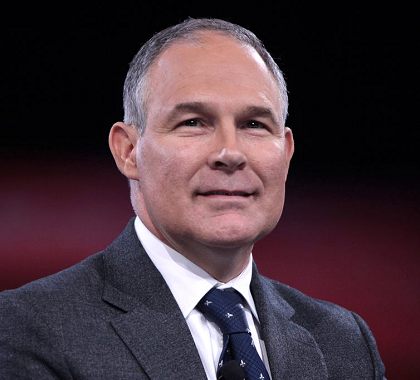Newly appointed Environmental Protection Agency (EPA) Administrator Scott Pruitt has hinted EPA may end a decades-old federal waiver that allows California to set emissions standards stricter than elsewhere in the United States.
In his January confirmation hearing, Pruitt said he couldn’t commit to retaining the current version of the waiver, which comes up for renewal every year, which has been the cornerstone of California’s efforts to combat global warming.
Under various federal waivers, California regulators have set stricter standards for air pollutants and greenhouse-gas emissions from automobiles and industry. Several other states have adopted California’s standards as part of their own efforts to improve air quality and fight global warming.
Even EPA’s less-burdensome standards impose huge costs on the U.S. economy, says William F. Shughart II, research director at The Independent Institute and a professor in public choice at Utah State University.
“Not very many people would disagree with the conclusion the EPA is imposing heavy costs on the American economy, mostly with respect to driving the coal industry out of business,” Shughart said.
National Influence
The main result of a removal of the waiver would be a beneficial harmonization of air-quality standards and improved interstate trade, Shughart says.
“This is important because California has tougher standards than the rest of the nation,” Shughart said. “For example, refineries have to comply with them when they are blending gasoline, making it difficult for us to have a single market for gasoline in the continental United States.
“Gasoline refined in Utah can’t be shipped to California if there happens to be a price spike there, because there are not enough proper blends of gasolines to sell in California,” Shughart said.
Because California is a large market, national manufacturers and industries have to meet its standards or lose an important market. As a result, the waiver imposes Californians’ preferences on people and businesses across the nation.
“The federal waivers allow California’s standards to become the nation’s standard, imposing Californians’ tastes and preferences for air quality on the rest of us,” Shughart said.
Kenneth Artz ([email protected]) writes from Dallas, Texas.





